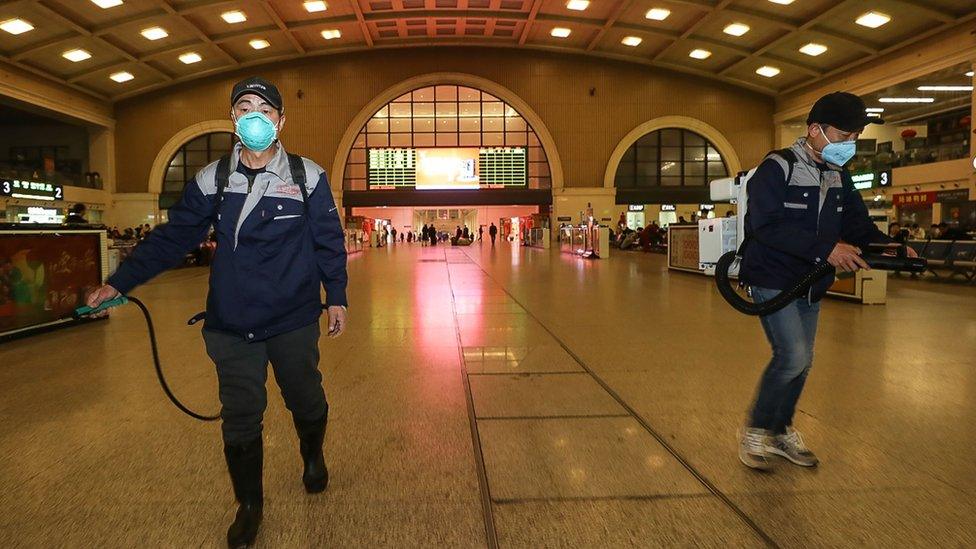Coronavirus: Death toll climbs to 106 as China tightens measures
- Published
"Wuhan, add oil!": Watch residents shouting to boost morale in quarantined city
The death toll from the new coronavirus now stands at 106, with the number of infections almost doubling in a day to more than 4,500.
The rise comes as governments scramble to control the spread of the virus. Hong Kong is going to slash cross-border travel with mainland China.
Meanwhile, Japan is sending a plane to Wuhan, the epicentre of the outbreak, to evacuate its citizens
The virus has spread across China and to at least 16 countries globally.
Wuhan, as well as wider Hubei province, are already effectively in a lockdown with strict transport restrictions in and out of the area. Wearing masks in public is now mandatory in some Chinese cities.
On Monday, authorities in Beijing confirmed a 50-year-old man had died - the first fatality in the Chinese capital from the virus.
Hours later, Hong Kong leader Carrie Lam said the high-speed rail line between the territory and mainland China would be suspended from Thursday. Flights, buses and ferry services will also be cut down drastically in an effort to halt the virus's spread to the city - a global financial centre.
The coronavirus causes severe acute respiratory infection and there is no specific cure or vaccine.
Most of the deaths have been in Hubei province. The initial victims were mostly elderly people or those with pre-existing respiratory problems, but few details have been released about the dozens of deaths confirmed in recent days.
A total of 60 people had been discharged from hospital after recovery, according to Chinese state media.
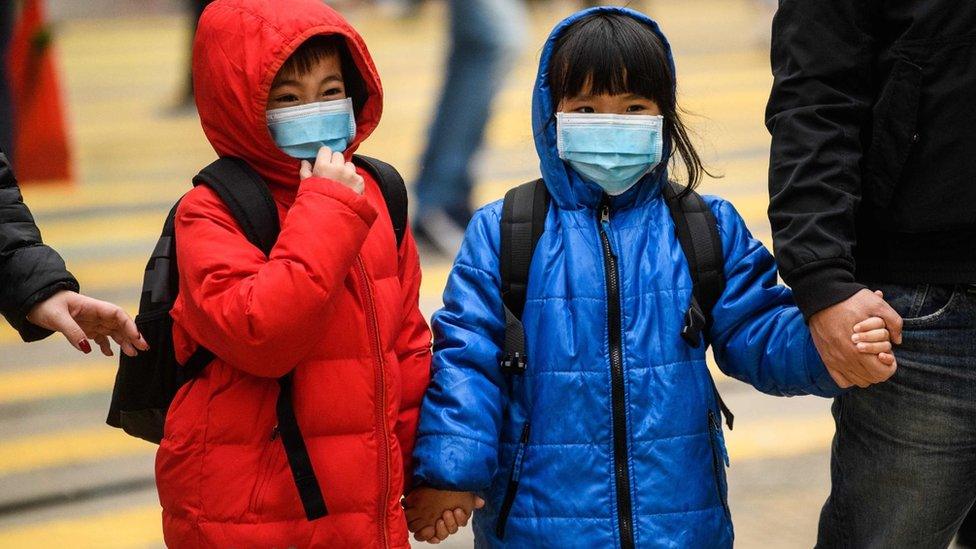
The new coronavirus causes severe acute respiratory infection
What steps is China taking?
Efforts to stem the spread of the virus have coincided with the Lunar New Year celebration, which usually sees millions travel across the country to visit relatives and friends.
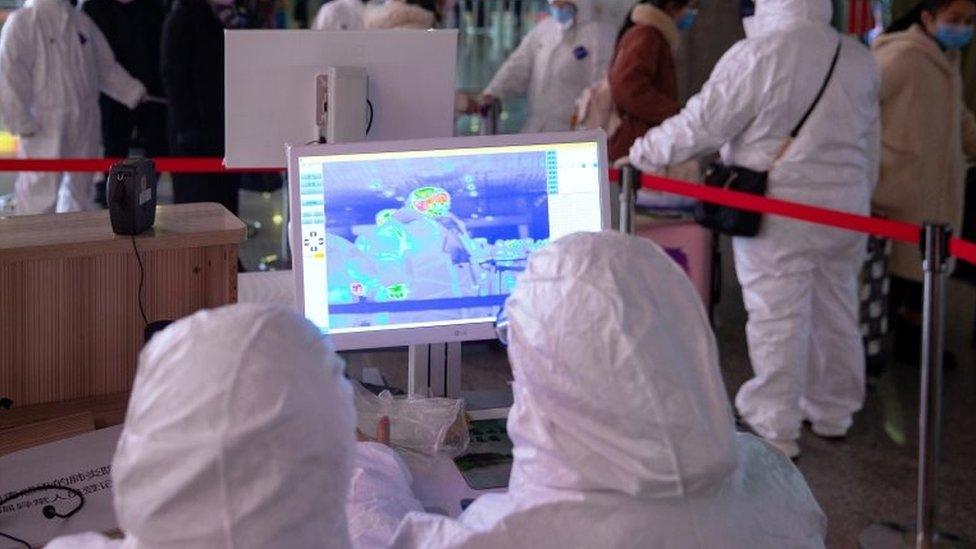
Travel is being severely restricted and monitored
To try to stop the spread of infections, many of the new year festivities have been suspended and the holiday period has been extended by three days to Sunday.
Chinese authorities have also imposed several other measures in recent days:
Beijing and Shanghai introduced a 14-day observation period for people arriving from Hubei
Authorities postponed the new semester for schools and universities nationwide, without giving a resumption date
China Railway Group suspended hundreds of train lines throughout the country
The immigration administration encouraged citizens to reconsider the timing of overseas travel to reduce cross-border movement
Road blocks and ghost towns: Inside the province where the virus originated
In Wuhan, travel from the city of 11 million people has been severely restricted and non-essential vehicles have been banned from the roads.
The city's mayor though said about five million people had already left the city ahead of the holidays and before the lockdown.
Several major cities have suspended public transport systems, taxis and ride-hailing services.
The Disneyland attraction parks in Shanghai and Hong Kong have both been closed.
How is the virus spreading?
The new coronavirus is thought to have emerged from illegally traded wildlife at a seafood market in Wuhan and can now spread between people.
Chinese authorities over the weekend said the virus was - like a normal flu - able to spread during its incubation period and before any symptoms appeared.
This would set it apart from cases like Sars and Ebola and make it much harder to contain.
The incubation period can range from two to 10 days, according to the World Health Organization (WHO).
However unlike China, it said it remained unclear whether the virus was contagious before symptoms appear.
The number of total cases confirmed by China rose to 4,515 as of 27 January, up from 2,835 a day earlier.


What is the situation internationally?
The United States, which has also had several infected cases, has urged its nationals to "reconsider travel" to China and is advising against travel to Hubei.
The country plans to fly consular staff and US citizens out of Wuhan in the coming days.
Japan is expecting to evacuate about 200 nationals on a chartered plane on Wednesday morning, with health workers on board to monitor passengers. The evacuees will be asked to look out for any symptoms of the new coronavirus for two weeks after their return.
Epidemic v pandemic: What's the difference?
Many other countries have also warned against any non-essential travel to China. Like the US and Japan, France has said it plans to airlift citizens out of Wuhan.
The UK is yet to make a similar decision but has urged Britons to leave the area if they can - however this has upset some living in Hubei who complain they are trapped.
The Philippines on Tuesday announced they would stop issuing visas on arrival for Chinese travellers.
Ben Kavanagh, a teacher originally from County Kildare, describes the scene in Wuhan
According to the World Health Organization and national authorities, there have been at least 47 confirmed cases, external outside China.
The latest case to be confirmed is in the German state of Bavaria, only the fourth so far in Europe.
Eight cases: Thailand
Five: USA, Australia, Singapore, Taiwan
Four: Malaysia, South Korea, Japan
Three: France
Two: Vietnam
One: Nepal, Canada, Cambodia, Sri Lanka, Germany
So far, there have been no deaths outside China.
What is the new coronavirus?
The virus causes severe acute respiratory infection and symptoms seem to start with a fever, followed by a dry cough. After a week, some people can experience shortness of breath and need hospital treatment.
The virus itself is a new, or "novel" coronavirus - a family that normally affects animals.
The effect of the coronavirus family on humans has long been observed mainly in the form of the common cold. In recent decades though, more serious coronaviruses - like Sars or Mers - have proven potentially deadly to humans.
Yet even in the cases of severe viruses most people infected were likely to fully recover just like they would from a normal flu.
On Tuesday, an expert at China's National Health Commission (NHC) said one week was sufficient for a recovery from mild coronavirus symptoms.
According to local media, the NHC also said the virus could infect children, but that their symptoms would be relatively mild.
Learn more about the new virus

Your questions: You asked, we answered
The story explained: How worried should we be?
Wuhan profiled: The city now in lockdown
In detail: Follow all our coverage here

Have you been affected by any of the issues raised? Are you in Wuhan or have you visited recently? You can share your experience by emailing haveyoursay@bbc.co.uk, external.
Please include a contact number if you are willing to speak to a BBC journalist. You can also contact us in the following ways:
WhatsApp: +44 7756 165803, external
Send pictures/video to yourpics@bbc.co.uk, external
Tweet: @BBC_HaveYourSay, external
Please read our terms & conditions and privacy policy
- Published27 January 2020
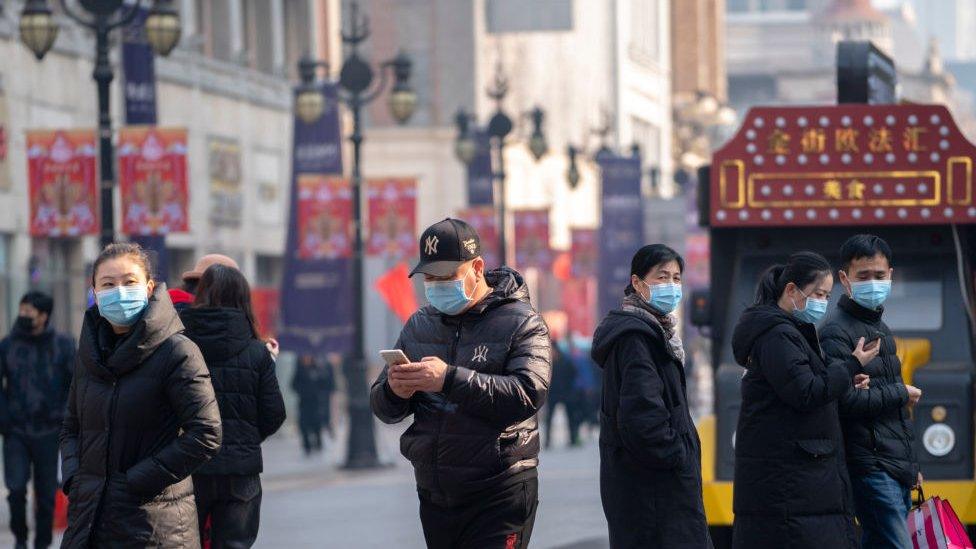
- Published6 October 2021

- Published26 January 2020
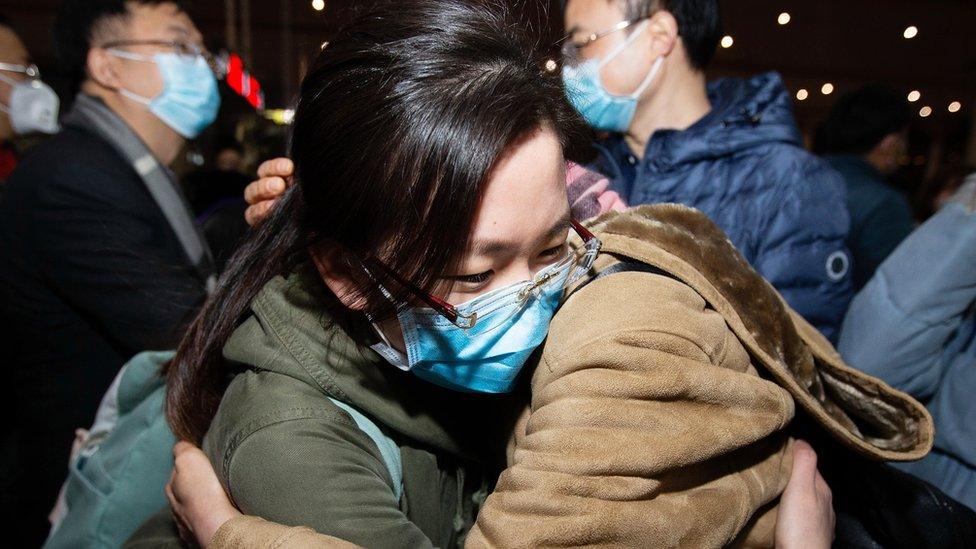
- Published28 January 2020
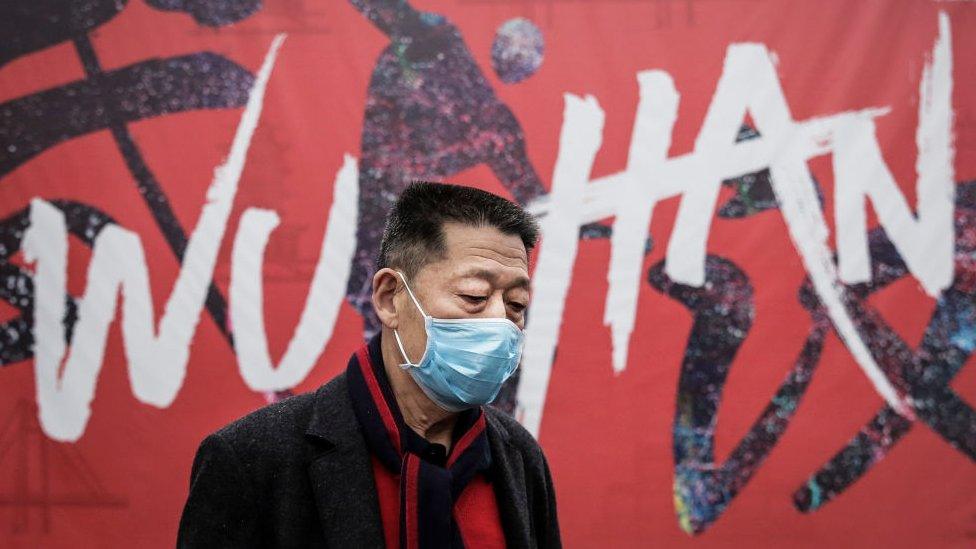
- Published24 January 2020
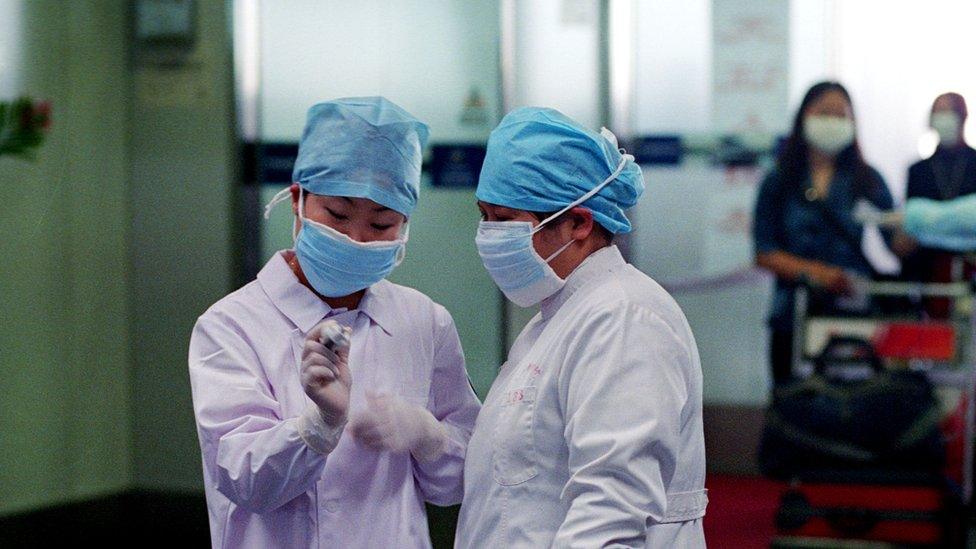
- Published23 January 2020
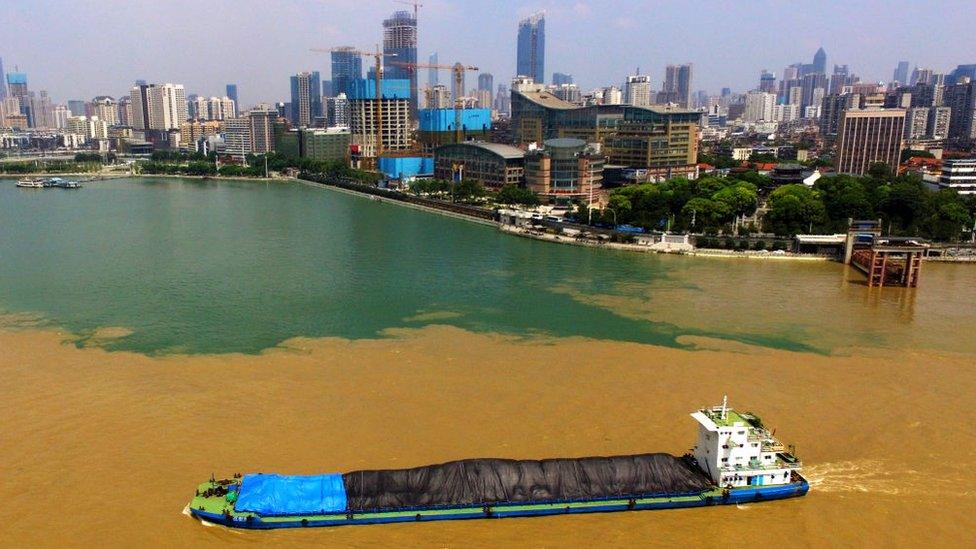
- Published23 January 2020
